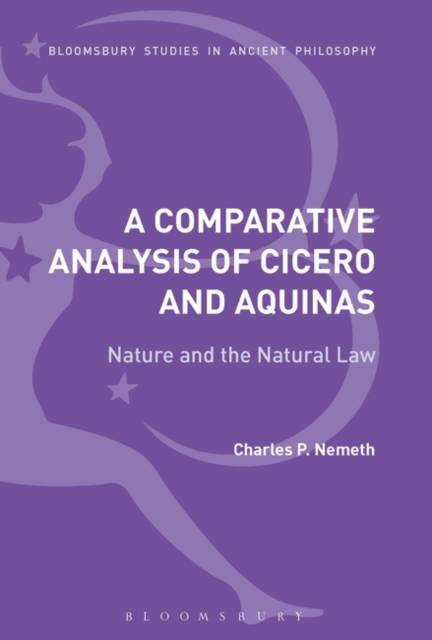
Je cadeautjes zeker op tijd in huis hebben voor de feestdagen? Kom langs in onze winkels en vind het perfecte geschenk!
- Afhalen na 1 uur in een winkel met voorraad
- Gratis thuislevering in België vanaf € 30
- Ruim aanbod met 7 miljoen producten
Je cadeautjes zeker op tijd in huis hebben voor de feestdagen? Kom langs in onze winkels en vind het perfecte geschenk!
- Afhalen na 1 uur in een winkel met voorraad
- Gratis thuislevering in België vanaf € 30
- Ruim aanbod met 7 miljoen producten
Zoeken
€ 81,45
+ 162 punten
Uitvoering
Omschrijving
In A Comparative Analysis of Cicero and Aquinas, Charles P. Nemeth investigates how, despite their differences, these two figures may be the most compatible brothers in ideas ever conceived in the theory of natural law. Looking to find common threads that run between the philosophies of these two great thinkers of the Classical and Medieval periods, this book aims to determine whether or not there exists a common ground whereby ethical debates and dilemmas can be evaluated. Does comparison between Cicero and Aquinas offer a new pathway for moral measure, based on defined and developed principles? Do they deliver certain moral and ethical principles for human life to which each agree? Instead of a polemical diatribe, comparison between Cicero and Aquinas may edify a method of compromise and afford a more or less restrictive series of judgements about ethical quandaries.
Specificaties
Betrokkenen
- Auteur(s):
- Uitgeverij:
Inhoud
- Aantal bladzijden:
- 208
- Taal:
- Engels
- Reeks:
Eigenschappen
- Productcode (EAN):
- 9781350091856
- Verschijningsdatum:
- 29/11/2018
- Uitvoering:
- Paperback
- Formaat:
- Trade paperback (VS)
- Afmetingen:
- 156 mm x 234 mm
- Gewicht:
- 299 g

Alleen bij Standaard Boekhandel
+ 162 punten op je klantenkaart van Standaard Boekhandel
Beoordelingen
We publiceren alleen reviews die voldoen aan de voorwaarden voor reviews. Bekijk onze voorwaarden voor reviews.









